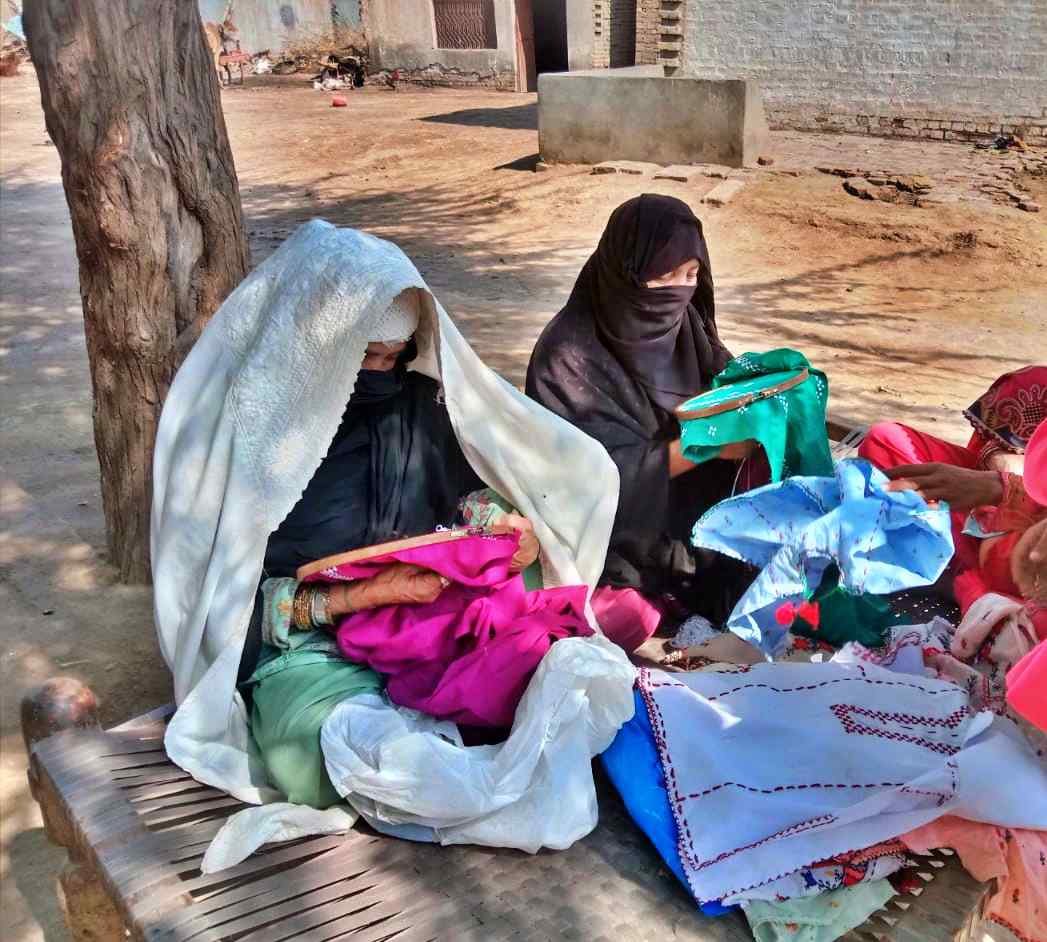CDP announces recovery and resilience grants for Pakistan floods

Unprecedented monsoon rains and flooding lead to catastrophic disaster
Pakistan’s 2022 monsoon season brought record-breaking levels of rainfall, devastating floods and landslides, affecting a staggering 30 million people across every province of the country.
And the 2023 monsoon rainfall season has not been any easier for the people of Pakistan, many of whom have not recovered from the disastrous impacts of the 2022 floods. Human Rights Watch said the floods show the need for climate action. Despite being responsible for less than 1% of global greenhouse gas emissions, Pakistan is among the countries worst affected by extreme weather events due to climate change.
Worsening disasters brought about by climate change and inadequate investment in risk reduction
Pakistan is not new to monsoon rains or disastrous floods. 2010 saw a massive response from the Pakistani government and significant international community support after the (at the time) unprecedented and devastating floods that drowned most of Pakistan and affected 20 million people.
Alex Gray, director of international funds at CDP, recalls moving to Pakistan in 2010 from New York because the devastation was so immense that he knew recovery would take years and perhaps decades.
“I was not the only one awe-struck at the scale of the devastation. The UN Secretary-General at the time said it was the worst disaster he’d ever seen. That was in 2010. At the time, I thought, ‘It can’t get any worse than this!’”
Well, it did get worse – a lot worse. 2022 saw a staggering 30 million people affected by unprecedented floods. Sadly, these climatic disasters are so frequent and increasingly worse that I am not surprised.
What I ask myself, however, is: “How much of the devastating impact in 2022 could have been prevented through good recovery, resilience and disaster risk reduction programming?”
Learning lessons and partnering for change
Immediately following the flooding that covered one-third of Pakistan in 2022, CDP reached out to its partners on the ground and began actively developing relationships with multiple local and national actors who are deeply rooted in the communities they are serving and who share CDP’s vision for a more resilient recovery with reduced disaster risk in vulnerable flood-prone communities.
CDP prioritizes investments in local organizations because we know they play a vital role in providing immediate relief and setting the course for long-term equitable recovery in communities after a disaster or crisis. These local actors are on the ground before disasters, are the first to respond, know how to support recovery and will be there long after international actors are gone.
As is most often the case, unfortunately, many of these local organizations are under-resourced and underfunded compared to their international counterparts/peers. CDP strives to fund locally-led organizations equitably as much as possible. When granting to trusted international partners, the CDP team gives more consideration to those who empower and help strengthen local and national stakeholders.
Supporting response, recovery and resilience
We are pleased to announce the following grants – from both the Global Recovery Fund and our funding partnership with Google.org – to support livelihood, Water, Sanitation and Hygiene (WASH), psychosocial support, education, and disaster risk reduction efforts to address the impacts of the flooding in Pakistan:
- Rizq: A $150,000 grant to help flood-affected farmers in Southern Punjab recover and provide risk reduction and resilience programming by providing essential agricultural inputs, knowledge, and support for sustainable income generation and community rebuilding, including water access.
- Tameer-e-Khalaf Foundation: A $182,161 grant to enhance economic resilience, restore agricultural productivity and improve the psychosocial well-being of vulnerable flood-affected families in Balochistan, Pakistan.
- Association for Women’s Awareness and Rural Development (AWARD): A $100,000 grant to help 2022 flood-affected communities (particularly women) of District Khairpur recover through improved housing, livelihood support, WASH and disaster risk reduction programming.
- The Citizens Foundation: A $78,846.65 grant to provide remedial education interventions to mitigate and recover learning losses among students in schools that were closed in 2022 in flood-affected communities in Sindh, Pakistan.
- Relief International UK (RI): RI and its local partner (VEER) received a $495,000 grant to support the most marginalized, at-risk flood-affected communities in selected districts (DI Khan) of Province Khyber Pakhtunkhwa (KPK), Pakistan – both vulnerable Afghan refugees and host communities. The project will help communities recover from the devastating impacts of the flooding, restore their access to safe water and recover their livelihoods, hence mitigating risk and reducing the adverse effects of adopting negative coping strategies among households exposed to the highest vulnerability. The anticipated reach of the project is 168,000 people (access to water) and 2,450 (livelihoods recovery).
We continue to track and assess the needs throughout Pakistan as communities recover from the effects of the flooding, and we will work to support those populations most disproportionately affected by climate-caused events. We are grateful to our grantee partners and donors for our collective focus on equitable disaster recovery and resilience.
